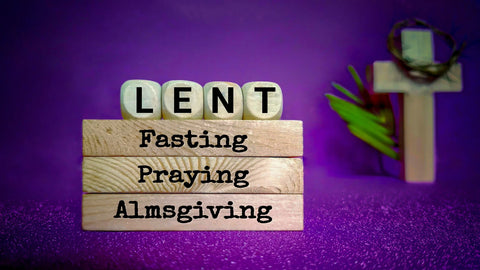Fasting is a spiritual discipline that has been practiced for centuries by various religious traditions, including Christianity. The practice of fasting involves voluntarily abstaining from food or other pleasures for a period of time, with the intention of drawing closer to God and seeking spiritual growth.
For the Catholic Church, to fast means eating only 1 full meal during the day - we can also still eat during the two other mealtimes, but these should only be 2 small meals which, if put together, would not exceed the main meal in quantity. Catholics are obliged to fast on Ash Wednesday and Good Friday.
Many saints have practiced fasting as a way to draw closer to God and to purify their souls.
One of the primary reasons why fasting is good for your soul is that it helps you to detach from material things and focus on spiritual matters. As St. John of the Cross, the 16th century Spanish mystic and Doctor of the Church, wrote, "The more the soul is detached from the things of the world, the more apt it is to receive divine illumination." By fasting, we deny ourselves the immediate satisfaction of our physical desires and instead turn our attention to the things that truly matter, such as prayer, Scripture reading, and acts of charity.
St. Catherine of Siena, the 14th century Italian mystic and Doctor of the Church, also recognized the spiritual benefits of fasting. She once wrote, "Fast and pray, and God will grant your heart's desire." By fasting and praying, we open ourselves up to the transformative power of God's grace and allow Him to work in our hearts in ways that we may not have thought possible.
Fasting also helps us to cultivate the virtues of self-discipline and self-control, which are essential for spiritual growth. St. Thomas Aquinas, the 13th century Italian theologian and Doctor of the Church, wrote that "fasting is the bridle of the passions." By denying ourselves the immediate gratification of our desires, we learn to exercise self-restraint and self-mastery, which are crucial for living a virtuous and holy life.
The lives of the saints provide numerous examples of the spiritual benefits of fasting. St. Francis of Assisi, for example, is known for his rigorous fasting and self-mortification. He once said, "I fast because I want to purify my soul, not because I want to punish my body." St. Francis recognized that fasting was not an end in itself, but a means of drawing closer to God and growing in holiness.
St. Teresa of Avila, the 16th century Spanish mystic and Doctor of the Church, also practiced fasting as a means of spiritual growth. She wrote in her autobiography, "I am convinced that anyone who wishes to bring about a great work, especially a work for the glory of God and the good of souls, must not do it without prayer and fasting." For St. Teresa, fasting was a way of uniting herself more closely to God and making herself more receptive to His will.
Saint Thérèse of Lisieux, a Carmelite nun and Doctor of the Church, also practiced fasting. She believed that it was a way to offer up her suffering to God and to atone for her sins. In her autobiography, she writes, "I found that fasting had a great effect on my spiritual life. It made me more aware of my dependence on God and helped me to develop a spirit of humility."
St. John Vianney, the 19th century French priest and patron saint of parish priests, is another example of a saint who practiced rigorous fasting. He would often go without food for days at a time, subsisting only on water and a few scraps of bread. When asked why he fasted so rigorously, he replied, "It is to keep my body in subjection and to render it more docile to the inspirations of the Holy Spirit."
One of the most well-known stories of fasting in the Catholic Church is that of Saint Francis of Assisi. Saint Francis, the founder of the Franciscan Order, was known for his extreme asceticism and devotion to poverty. He often fasted for long periods of time and even refused to eat meat or drink wine. In his writings, he said, "Fasting cleanses the soul, raises the mind, subjects one's flesh to the spirit, renders the heart contrite and humble, scatters the clouds of concupiscence, quenches the fire of lust, kindles the true light of chastity."
Another saint who is known for his fasting is Saint John of the Cross, a Carmelite friar and Doctor of the Church. Saint John spent a great deal of his life in solitude and prayer, often fasting and practicing other forms of asceticism. He believed that fasting was a way to detach from worldly pleasures and focus on the spiritual. In his writings, he said, "If you want to attain to the heights of contemplation, you must practice mortification and detachment from the things of the world."
The lives of these and other saints show us that fasting is not an easy or comfortable practice. It requires discipline, sacrifice, and a willingness to endure discomfort for the sake of spiritual growth. However, the rewards of fasting are great, as it helps us to draw closer to God, detach from material things, cultivate virtue, and become more receptive to the Holy Spirit's guidance.

